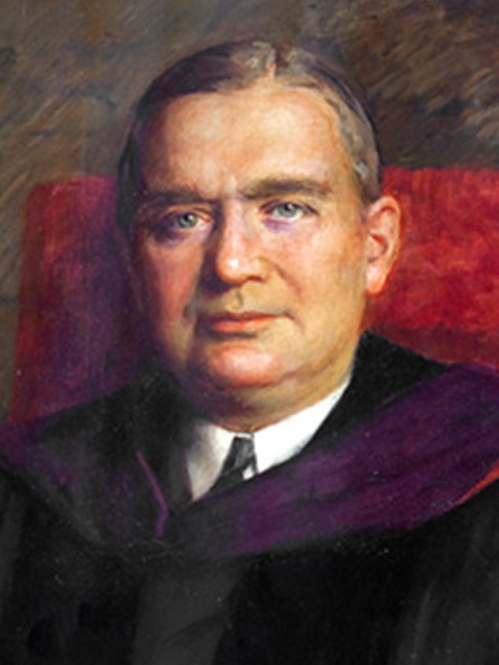Philip M. Brett Brett
Rutgers' 13th President, 1930 to 1931

Summary
“No one who has the interest of Rutgers at heart could but give sincere approval,” declared the Targum on news of the selection of Philip M. Brett (1871–1960) as acting president of Rutgers University in October 1930. To the student editors, he was “a true Rutgers son if there ever was one.” Brett took office at a time when the nation was plunging into the depths of a depression, the university was entangled over disagreements with the newly established State Board of Regents, and morale had severely dwindled among the faculty.
Biography
Philip Milledoler Brett was born in Newark, a graduate of the New Brunswick Theological Seminary, and the recipient of an honorary degree from Rutgers in 1916. A descendant of the Reverend Philip Milledoler, president of Rutgers College from 1825 to 1840, Brett was graduated from Rutgers in 1892. As an undergraduate he was the winner of the sophomore and junior oratorical prizes and was an active participant in athletics. He was captain of the football team in 1891, a member of the basketball team, and doubles champion with Clarkson Runyon Jr. Receiving his degree with honors, he was awarded an LL.B. from the New York Law School in 1894.
At the time of his selection as acting president, Brett was a partner in the Manhattan law firm of Nevius, Brett and Kellogg. In 1906 he became a member of the Rutgers College Board of Trustees, and served as chair of the committee on honorary degrees, a member of the executive and preparatory school committees, a trustee of the Epsilon Chapter of Delta Phi fraternity, and a member of its board of governors.
Brett served as acting president for 18 months, during which time he restored the confidence of the faculty and the alumni in the college. Their praise and affections culminated in a petition requesting him to accept appointment as president of the college. Though greatly honored, Brett declined the overture and relinquished the office to his successor, Robert C. Clothier, but continued his faithful service to the university as a trustee for 50 years. He died on July 2, 1960.
This biographical sketch was authored by Thomas J. Frusciano, Rutgers University Archivist. It originally appeared in The Journal of the Rutgers University Libraries.